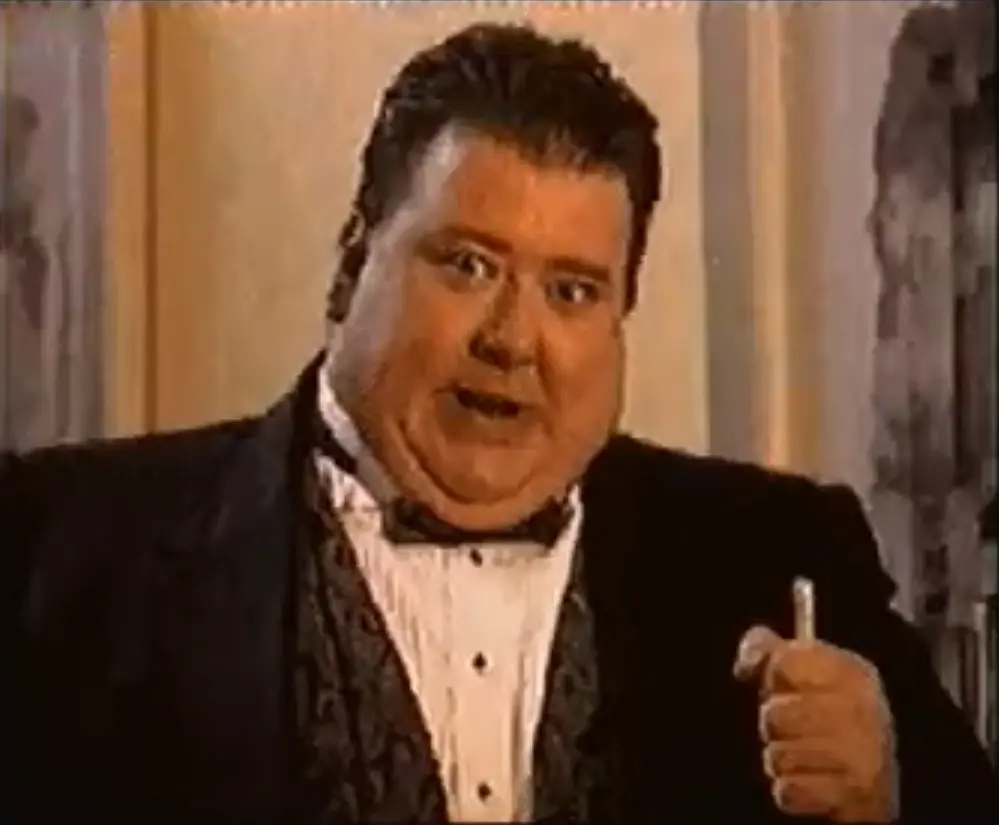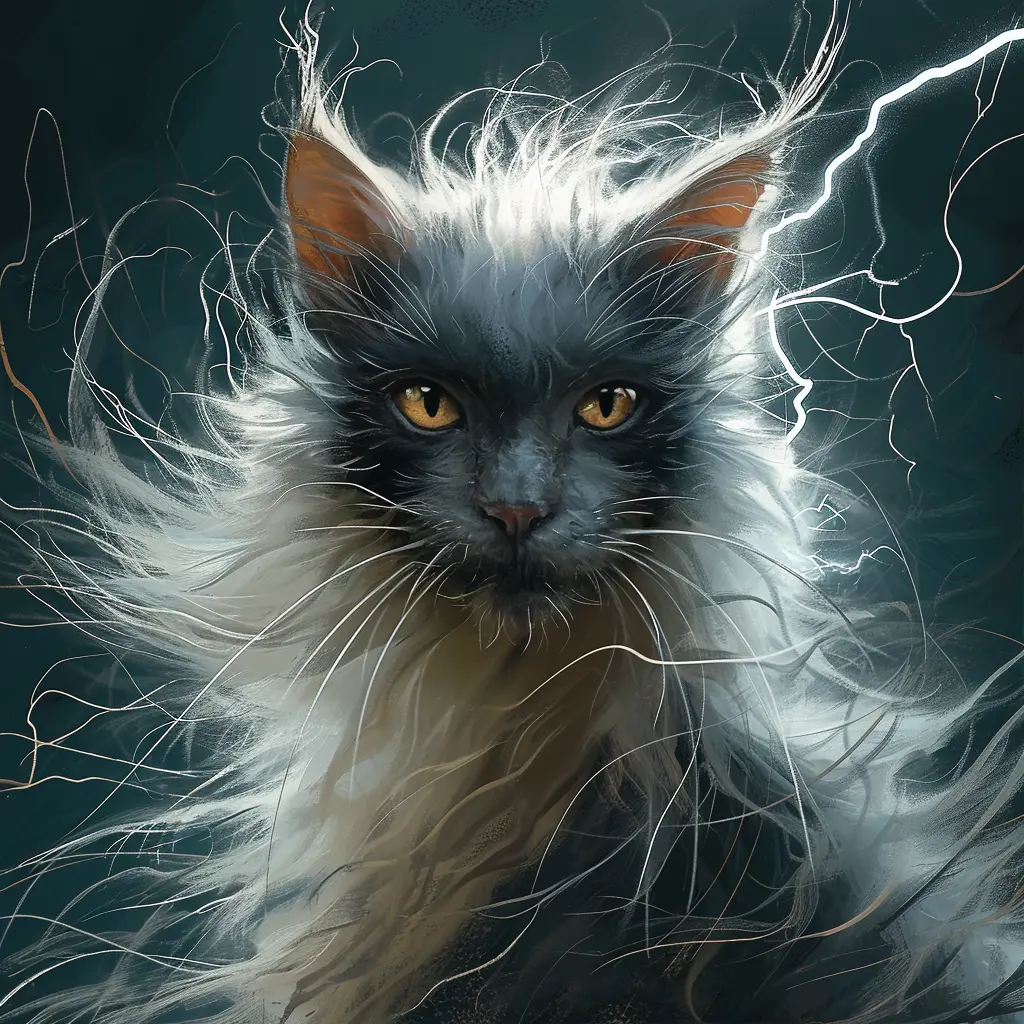As governor he got his state signed on to the national popular vote interstate compact
California gets 54 electoral votes; Wyoming gets 3.
California has 38.94 million citizens; Wyoming has 0.575 million.
California gets one electoral vote for every 721,110 people. Wyoming gets one for every 191,660. This means that per capita, Wyoming gets 3.76 times as much say in who gets to be the president as California.
Indeed. Scrap electoral college and remove the arbitrary cap on House reps.
Don’t forget to implement proportional representation in the House, blow up the senate, and implement ranked choice voting or something similar in all elections
remove the arbitrary cap on House reps.
I think thats what they meant?
If you’re thinking about proportional representation, that’s a separate thing
That is it’s own different thing yes, but the house members were supposed to be proportional to the USA population, except they capped it and it’s out of whack now.
Instead smaller states have out proportioned power.
Made up numbers, but in some states it might be 100k people per house member, and another state it’s 300k people.
I’m talking about actual proportional representation, single member house districts are way too easy to gerrymander
remove the arbitrary cap on House reps.
proportional representation
I thought you were conflating these two. If not, then I have no idea what you were talking about when you said
I think thats what they meant?
And that’s even before the bullshit that is swing states.
Aka FPTP wasting votes in most USA states since someone thought it great idea to issue electors as state size blocks. When Constitution gives each state right to decide ways of apportioning their awarded electors.
State starts awarding 3 democrat electors and 7 Republican electors and suddenly both parties care to entice voters to try to make it 2 and 8 or 4 and 6.
Doesn’t even take removing the electoral college. Just state deciding “state wide FPTP is stupid”, we are going to start using something more proportional.
Even in swing states it would still work, work better. Since there would be fight over is it 5 and 5 or 6 and 4.
Yeah, there is a laundry list of ways to improve the current system. It just sucks that so little progress is being made.
Problem is that without giving smaller states a bit more weight than their population, you risk loosing them, because they have no means to weigh in. Thats why in the EU smaller countries also have more representatives relative to their population.
For the US, if only the coasts would have political power in the federal level, the mid would have a lot of motivation to fuck things up for them.
This isn’t the electoral college causing the problem. It’s Congress capping the size of the house 100 years ago. It needs to be increased, but it won’t happen without force as it requires Congress to agree to reduce their individual power.
sigh
Yes, it is the EC causing the problem. You’ll never get 1:1 with it in place no matter what congress does.
There’s 0 reason the president, representative of all people, should use this shitty system for election
It’s a federalist Republic, direct democracy is the opposite of the design.
This isn’t direct democracy, we aren’t voting on every issue that would otherwise come across the presidents desk. We are still electing representatives to make decisions on our behalf.
We are still a federation of states (federalist) represented by elected decision making leaders (Republic).
Our current system is far more direct than intended. The masses weren’t supposed to pick senators and presidents, that isolated from populist candidates. Leaning even harder to systems vulnerable to populism is a poor choice.
I don’t care what it was meant to be. I really don’t. What it is is bullshit.
We don’t have to stick with the original design, the founders were in no way perfect
We should have a good reason to to swap, especially to something they purposely avoided.
And we do. It seems silly to hold their wishes in such high regard compared to our own anyway though, we know more about how our system works in practice than they did when thinking of it after all, both because things dont often go completely as planned and we have the actual experience of using the result for a significant time, and because the system has been already changed in various ways already over that time.
What is the good reason to keep it? That our slave-driving wealthy elite founders were infallible?
Tread on me harder, daddy.
A good reason like the current system not actually being representative of the will of the people?
Sure but I don’t think anyone could look at it and critically think the current system is for the benefit of the common man in any way shape or form.
It was designed to prevent Trump, instead Trump happened. That’s a flaw in our current system that needs to be fixed.
The Electoral College is allowing more an more manipulation from these small states. It is time for that to end. They are holding this country back much too much.
As a pretty left person who lives in Tennessee, please get rid of it. Anytime I have this conversation with folks on the right, I always point out that there are more Republican voters in California than Texas. That usually gets them to concede.
Brilliant.
Of course, there’s no guarantee republicans would understand the point.
Republicans aren’t any dumber than Democrats, they’re just more evil.
ONE PERSON
ONE VOTE
ONE CAGE
ONE BELT
ONE CHAMPION
SUNDAY
SUNDAY
SUNDAY
MONSTER TRUCK!
As an Alabamian I dream of the day that my vote actually matters, fuck the electoral college.
As a Washingtonian I also dream of that. It is ridiculous that only people in states that are kinda purple have their opinions heard.
I’d prefer at least to maintain districts, 1 vote for 1 district, remove states and the extra two votes. Each district exactly the same number of people, give or take 1%. Give the low populated counties out in the boonies a chance to be heard.
But failing that, straight popular vote is a better option than the current cluster fuck.
If it is equal representation, why does having districts make the rural vote heard? Whether it is one person one vote or 100,000 people one vote it won’t make a difference.
Everyone will still have their representatives and senators to hear them. In fact I think we need to increase the number of representatives. It needs to be a number that a person can reasonably represent. Say 50 or 100 thousand people per representative. This would also help with gerrymandering as having a lot of small districts would make everyone’s voice louder.
But for national positions like the president, we should have proportional votes, preferably with getting rid of first past the post that got us stuck with the two party system to start with.
Congress of going to need to expand a little bit, if all 3,330-6,660 reps should be able to gather at the same time.
This would be a problem if it were 1924, but we’re living in 2024. The solutions for this are right in front of us and have been for decades. Get all these guys and gals on a secure teleconference and turn the Capitol building into a museum, or renovate it to have smaller private offices.
There, now we can get 10,000 reps in if we need to. The bigger concern is how are they going to decide who gets to speak with that many representatives. They can’t realistically give everybody equal floor time and expect government to be anything other than completely paralyzed. So the number probably still needs to be capped, but it should be capped at a value where whatever the state that has the lowest population sets the value at 1 and every other state divides their population by that number to figure out how many representatives they get.
There was an article (Archive Link) in The Washington Post discussing the nuts and bolts of how expanded representation could work. It wouldn’t be hard.
A quote from the article: To my surprise and delight, the team’s last proposal reveals that we could actually take the House of Representatives up to 1,725 members without having to construct a new building.
Districts open things up to gerrymandering…
Which is a problem that needs to be solved regardless.
Absolutely, but let’s not make it worse by putting the presidential election behind it… It’s bad enough it causes an imbalance in the House of Representatives. It would be far worse than the Electoral College.
Trump in 2012: The electoral college is garbage and needs to go. Trump in 2016: The electoral college is genius. What a great system. Trump in 2020: The electoral college is garbage and needs to go
I remember his tweets each time.
But without the electoral college, politicians would suddenly have to care about states with a lot of people living in them
Yup, I understand it was meant to give smaller states an equal voice but he GOP weaponized it and now the minority is speaking for the majority. Tell me the system isn’t broken when ONE vote in shitty red state Wyoming is equal to TEN THOUSAN VOTES in Blue California?
Weaponized… sounds dangerous…
100% correct.
Hey hey! Ho ho! The electoral college has got to go!
I’m glad someone is saying it! Stupid ass lines on a map determines who becomes president
Can we get rid of the senate too?
As a Canadian, can anyone ELi5 how the electoral college works? Is it like every state gets the same amount of votes regardless of population?
It’s really impossible to keep this brief, but I’ll try to keep it understandable:
The EC is a body of “electors”, who serve as an intermediary body between the direct democracy of a popular national vote and the actual selection of a president. Their purpose is literally and intentionally to serve as a middleman, both to give a safety net to the ruling classes to make sure that whoever wins an election is someone they approve of, as well as to install a system that takes a national popular vote and basically applies an overlay to it…an overlay that leaves the process open to manipulation, stacking the odds, etc.
I’m not just saying this as a criticism of the system (though it is), this is the explicit purpose of the existence of the system.
Now to the nuts and bolts:
The US has a federal government with three branches: the executive (headed up by the president and including all of the various “Departments” like the departments of State (handling all diplomatic affairs), Defense (the military), Justice Department (FBI), Interior (National Park Service), Education, Agriculture, Homeland Security, etc.
Then there’s the Judicial Branch, which is the federal court system, spearheaded by the Supreme Court. In addition to criminal trials involving federal crimes, they also have the responsibility of deciding on whether laws or actions of other government bodies are constitutional. If not, they have the authority to strike them down.
Last there’s the legislative branch, which is responsible for creating laws and deciding how to spend money. Within the legislative branch, there are two bodies: the Senate, and the House of Representatives. This is because when the government was being created, states were much more independent than they are now, and there was a serious disagreement over how not only the people, but also the states would be represented in federal government.
So for the House, the number of Representatives each state sends is (roughly) proportional to that state’s population; ie. a state with more people living in it will have more representatives than a state with fewer people living in it. The specifics have changed over time, and the way this system works is another issue, but that discussion is for another time.
However, smaller states, and (especially) states with slaves were concerned that even though they had a serious impact on the nation, they had a small voice in government. They wanted a system where their state was on equal footing with more populous states. Where just because they had less people (and by “people”, in that time, they of course meant “land owning white male people”), they wouldn’t have less power.
Thus there were two concessions given to these states to get them to join the union:
First, the three-fifths compromise: when determining population (to see how many representatives each state could send to the House), states were allowed to count each slave living in that state as three-fifths (0.6) of a person. Yes, these slaves, who their states regarded as property any other time, and who sure as hell weren’t allowed to vote…were nonetheless to be allowed to count toward how much voting power their owners would have.
And second…the Senate. The Senate is the other house of Congress, where instead of determining members by population, it’s much simpler: every state gets two. Regardless of population. This puts the smallest state on equal footing with the largest in the Senate.
And since both chambers of Congress (the Senate and the House) must pass a bill in order for it to become law, this is why it’s so hard to get anything done for Congress.
SO!
Now that we know about the house and Senate and why and how they are the way they are… what’s that have to do with the electoral college?
Well…the number of electors from each state are determined by adding up the number of Representatives and Senators that the state sends to Congress. So a small population state like say, Wyoming has one representative because very few people live there…and they get two senators because they are a state and all states get two. 2 + 1 = 3. So in a presidential election, Wyoming gets 3 electoral votes. For a more populous state, like my home state of Pennsylvania, we’ve got 17 representatives. Adding our two senators to that means that Pennsylvania gets 19 electoral votes for president.
Adding up all these electoral votes, it works out such that whichever candidate gets 270 electoral votes wins the presidency.
So you might be thinking, “Hmm… sounds like proportional voting and democracy with extra steps… what’s the big deal?”
Well… there’s two issues going on:
First: It’s only proportional in allocation, but not so much in casting those votes. Of all 50 states, all but two (Maine and Nebraska) are set up such that whoever wins the state wins all of that state’s electoral votes. So take my Pennsylvania for example: we’ve got about 13 million people living here. Obviously not everyone can vote, and not everyone that can vote will vote, but if next month, let’s say all 13 million of us vote…if 12,999,999 people vote for Trump and 1 person votes for Harris, Trump wins all 19 votes. That makes sense. However, if Trump gets 6,500,001 votes and Harris gets 5,999,999 votes, that two vote difference means that Trump still gets all 19 votes. We don’t split them so that he gets 10 and she gets 9. Winner take all.
Not only does this distort the popular vote, but it also has the effect of making a narrow victory in one area the same as a landslide in another.
Second: With the way votes are allocated, the fewest that any state can have is three (one representative and two senators). Even if ten people lived in that state, they still get three votes in the electoral college. Meanwhile, with the way congressional laws work, states with bigger populations do get more representatives…but as a state’s population gets bigger and bigger, even though they get more electoral votes, each of those votes encompasses more and more people.
So looking (approximately) at Wyoming and California: Wyoming has a population of 582,000 and gets 3 votes, California has a population of 39,000,000 and gets 54 votes. That means that every vote in Wyoming represents about 194,000 residents, while every vote in California represents about 723,000 residents.
Doing the math, this means that every vote in Wyoming carries about 3.73x more power than a vote in California.
So in summary: the biggest criticisms of the electoral college are:
-
The lopsided way votes are allocated in the first place.
-
The winner-take-all system awarding the same number of votes for a landslide and a narrow victory distorting the actual voting numbers.
-
The lopsided allocation resulting in a situation where some Americans living in low population states having dramatically more power than others, based simply on where they live.
Of course these issues lead to lots of other weirdness and wrongness…for example: with the winner take all system, candidates don’t even try to win states that are projected to safely go to one candidate or the other…they focus all attention on “battleground” states where the election is set to be close, ignoring millions of people nationwide because they happen to live in a state that’s not competitive. A national popular vote would eliminate state political boundaries and make everyone’s vote matter equally.
Likewise, this is how you end up with a case like 2016: more people voted for Hillary Clinton than Donald Trump…but those people lived in the wrong states, so basically she won by bigger margins but the margins meant nothing because he won narrow victories in more areas…so even though more people wanted her to be president, because of the electoral college, he got enough votes in the right geographical areas to win the presidency with fewer votes.
-
No, you get a number of votes equal to your total representatives in Congress, so it’s a compromise between population size and statehood, as the House is based on population and every state gets two votes in the Senate.
The problem is that the votes are really electors. The specifics of that get beyond ELI5 because it’s largely up to the states individually but in general whoever wins the popular vote of a state is supposed to get all of their votes.
And to quickly expand on that with my little knowledge (I haven’t confirmed this yet), states can decide to throw all of their electors for one candidate if that state gets a majority in the electorate.
The Hill - News Source Context (Click to view Full Report)
Information for The Hill:
MBFC: Least Biased - Credibility: High - Factual Reporting: Mostly Factual - United States of America
Wikipedia about this sourceSearch topics on Ground.News
https://thehill.com/homenews/campaign/4923526-minnesota-gov-walz-electoral-college/










